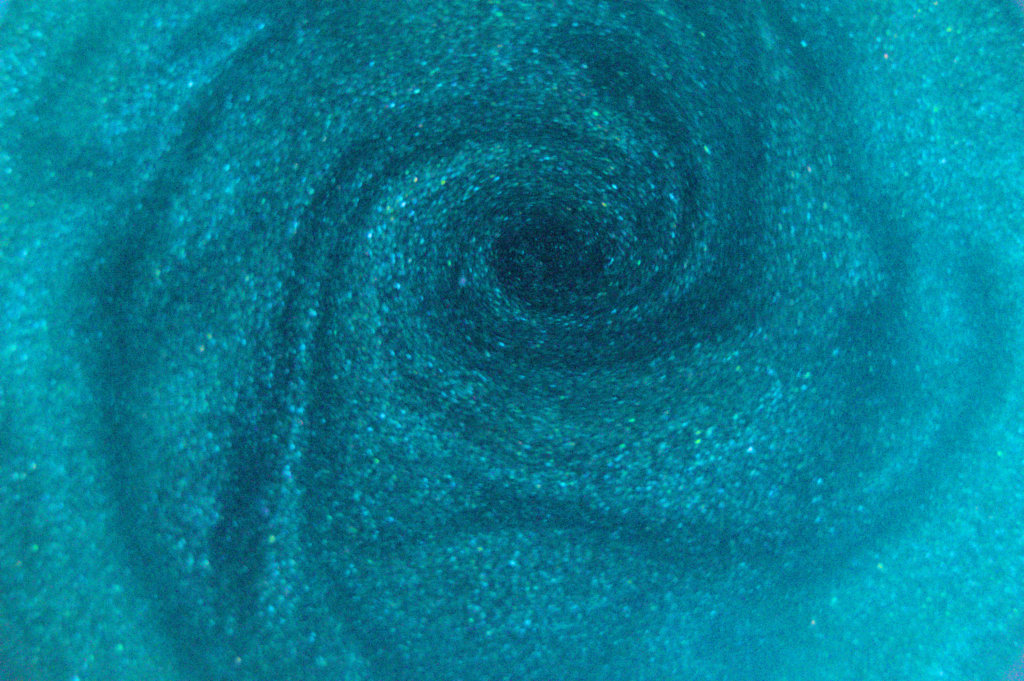This image depicts green edible glitter added to a mix of blue food coloring and water to create a rheoscopic fluid. The fluid was in a circular glass and swirled in a circular pattern, creating the vortex flow pattern shown in the image. This image was taken on a Nikon D3200 camera with an aperture of f/6.3, a shutter speed of 1/160 s, and an ISO of 12800.
Team Second- Sarah Hartin
Categories
Search for content or authors
Flow Vis Guidebook
- Introduction to the Guidebook
- Overview 1: Phenomena. Why Does It Look Like That?
- Overview 2: Visualization Techniques
- Overview 3: Lighting
- Overview 4 - Photography A: Composition and Studio Workflow
- Overview 4 - Photography B: Cameras
- Overview 4 - Photography C: Lenses - Focal Length
- Overview 4 - Photography C: Lenses - Aperture and DOF
- Overview 4: Photography D: Exposure
- Overview 4 - Photography E - Resolution
- Overview 5 - Post-Processing
- Clouds 1: Names
- Clouds 2: Why Are There Clouds? Lift Mechanism 1: Instability
- Clouds 3: Skew - T and Instability
- Clouds 4: Clouds in Unstable Atmosphere
- Clouds 5: Lift Mechanism 2 - Orographics
- Clouds 6: Lift Mechanism 3 - Weather Systems
- Boundary Techniques - Introduction
- Dye Techniques 1 - Do Not Disturb
- Dye Techniques 2 - High Visibility
- Dye Techniques 3 - Light Emitting Fluids
- Refractive Index Techniques 1: Liquid Surfaces
- Refractive Index Techniques 2: Shadowgraphy and Schlieren
- Particles 1- Physics: Flow and Light
- Particles 2: Aerosols
- Particles 3: In Water
- Particles 4 -Dilute Particle Techniques
- Art and Science
- TOC and Zotpress test
- Photons, Wavelength and Color

2 Comments. Leave new
wow how entrancing, the framing of the single vortex is great, and i like the blur of the outer edges.
Hello Sarah,
The blue color that you captured in this image is so beautiful! I like how you centered the image around a really dominant focal point. The cropping you chose to do really enhances the image and helps your eye follow the circular flow.